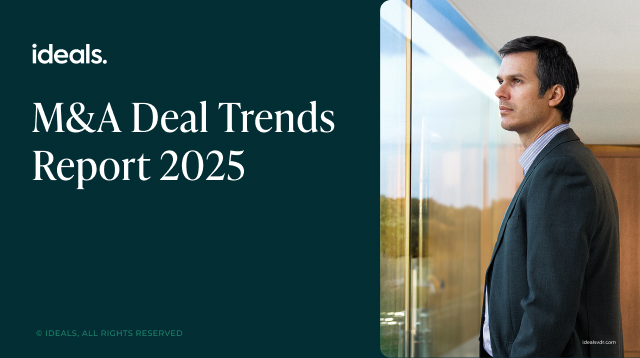Industrial M&A is undergoing a period of transformation, driven by shifting geopolitics, sustainability pressures, and rapid technological change. Few have a broader perspective on these shifts than Marc Potel, Head of Industrial M&A at Investec.
Over his career, Marc has advised on more than 50 transactions totaling over $50 billion, holding senior roles at Jefferies, Nomura, and Citigroup. Today, he guides companies through acquisitions and divestitures across aerospace & defense, automotive, building products, capital goods, chemicals, industrial services, and packaging.
I spoke with Marc to learn about the current industrial M&A landscape, the key trends shaping deals, and the transactions that have defined his career.
Q: You’ve worked at some of the biggest names in banking. What drew you to Investec at this stage?
I joined Investec in 2023 during a challenging global economic landscape. That created an opportunity to focus on the mid-market, where deal activity remained resilient. Looking back, it’s been a successful move; we’ve completed transactions ranging from smaller deals to multi-billion-dollar enterprise values. While large-cap deals are important, the mid-market’s breadth and consistency are fundamental to what we do.
Investec’s strong reputation in corporate broking, particularly in industrials, was another major draw. With coverage of more than 60 stocks, we have deep relationships that provide a solid foundation for a competitive M&A practice. The strength of our Wealth and Private Banking divisions also opens doors, particularly with private, owner-managed businesses.
Our client base is especially strong in private equity. With around 250 sponsor clients in the UK and well-established relationships with key decision-makers, we’re well positioned to pursue meaningful opportunities across the industrial landscape.
And, of course, the chance to build a leading advisory business was compelling. We’ve already seen strong momentum, evolving from a startup into a multi-million-dollar revenue line, with plenty of room to grow.
Q: Looking back, are there key deals that still shape your approach to M&A?
Three transactions have had a lasting impact on me.
One was the sale of GKN Hydrogen for Dowlais Group PLC. We had just three weeks to complete the deal, which drove home the importance of identifying the right buyers, keeping things simple, and moving decisively on key discussions. It was a reminder of how valuable a focused, strategic approach is under pressure.
Another pivotal deal was the acquisition of Nortek for Melrose Industries PLC. This was one of the first major acquisitions by a UK-based company after Brexit, as European firms looked to the US amid domestic uncertainty. Melrose was evaluating multiple opportunities at the time, so our team had to stay flexible and keep perspective. For me, the deal reinforced the value of resilience and creative thinking.
Earlier in my career, Weichai’s investment in Kion Group taught me the value of conducting an exhaustive global search for buyers. I learned never to make assumptions and to “get the proper color” while ensuring client objectives were achieved.
Q: How would you describe the current industrial M&A landscape?
It’s a time of uncertainty. Automotive, construction, capital goods, and chemicals are all facing headwinds, from the transition to net zero, to shifting government policies, geopolitical tensions, tariffs, supply chain realignment, and rising input costs.
Despite these challenges, aerospace and defense have performed well. We’ve worked with four public clients in these sectors, and the results have been encouraging, reflected in solid share price growth. On the private side, areas such as defense AI, sustainable aviation, drone technology, and radiation detection are also gaining momentum.
Private equity firms are approaching deals cautiously, focusing on compelling value-creation stories, minority or partnership investments, and niche businesses that can withstand external pressures.
Q: Energy transition and sustainability are increasingly shaping industrial deals. How are they influencing valuations?
Sustainability and energy transition are influencing valuations, reflecting mega trends that influence the way we live day to day. This impact is visible in both public and private markets.
ESG initiatives can be powerful growth drivers, but only if they deliver tangible results beyond regulatory compliance. For example, if we look to build new net-zero homes, then they can’t be unaffordable. Sustainability is incredibly valuable, but we need to ensure that it’s commercially viable.
Q: What trends will drive industrial M&A over the next 12 months, and how are you managing current risks?
We see several factors shaping the outlook for industrial M&A. Fiscal loosening, easing geopolitical tensions, and new trade deals could all help unlock more activity. At the end of the day, GDP growth will always be the key enabler for strong dealmaking.
At the same time, external pressures such as tariffs, supply chain realignment, and cross-border risk can’t be ignored. We have proprietary methods to analyze and mitigate these challenges, so I won’t share the details here. The key point is that when the rationale is right, the deal can still get done.
Q: How is generative AI changing the way you identify M&A targets?
The pace of technological change is accelerating rapidly. AI and digital tools are invaluable for data analysis and research, but they don’t replace human relationships.
One of the biggest benefits of AI is that it frees up time, allowing us to spend more of it with clients, understanding their challenges, and helping them navigate deals. The real opportunity lies in using technology to enhance human insight and engagement, not replace it.





